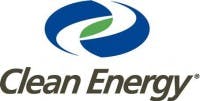
According to the company’s most recent 10-Q, sales were essentially unchanged in the second quarter of 2012 compared to the same period last year. Higher SGA expenses, among other factors, caused Clean Energy Fuels Corp.’s net losses to double. This was an improvement over the first quarter of the year- in total, net losses in the first half of 2012 were 50 cents per share as opposed to 22 cents per share last year, and that is with an increase in share count over that time. In fact, the company was cash flow negative in the first six months of 2012. It is not expected to turn a profit next year either, so investors would have to wait a considerable amount of time to be able to evaluate the company on a traditional value basis.
Last summer there was a substantial insider buy as Board member John Herrington purchased 21,400 shares of the stock at an average price of $13.30 per share- slightly above the current market price. However, there have also been a number of insider sales; insider sales are generally not as informative as insider purchases as sales may merely be a way to diversify an insider’s wealth away from the company, but it can still be advantageous to be aware of them. See our records of insider purchases and insider sales at Clean Energy Fuels. David Gallo’s Valinor Management held the largest position in the stock at the end of June out of all the hedge funds and other notable investors in our database, at 740,000 shares (find more stocks owned by Valinor Management).
Peers for Clean Energy Fuels include Westport Innovations Inc. (NASDAQ:WPRT), which manufactures engines which run on natural gas; Ryder System, Inc. (NYSE:R), which leases its truck fleet to business customers and is moving into natural gas-powered units; leading natural gas producer Chesapeake Energy Corporation (NYSE:CHK); and liquefied natural gas company Cheniere Energy, Inc. (NYSEAMEX:LNG). Westport and Cheniere are like Clean Energy Fuels in that they are not expected to make profits this year or next year. They have slightly higher market caps- $1.7 billion and $2.7 billion, respectively, compared to Clean Energy Fuels’s $1.1 billion. While Cheniere’s sales have been down recently, in line with lower natural gas prices, its stock has more than doubled over the last year. We don’t think it makes for a good buy based on that look. Westport more than doubled its revenue between the second quarter of 2011 and last quarter, but that was not even to make it profitable. We would have to examine it more closely, and see a link between continued growth and shareholder value, before buying.
Ryder trades at 12 times trailing earnings and 10 times forward earnings estimates, making it a cheap peer on a forward basis (of course, its exposure to natural gas is not as pure as the companies we’ve discussed). It also pays a 3% dividend yield and grew its earnings by 17% in its most recent quarter compared to the same period in the previous year. It looks like a good value, and also has at least some upside from integrating natural gas into its offerings. Chesapeake is busy selling off a number of its assets in order to raise enough cash to get through this year, but looks to have avoided the worst-case scenario of having to accept fire-sale prices. Consensus earnings for 2013 imply a forward P/E of 15, and its core business is stable despite low natural gas prices. Even after its rally- the stock fell from above $24 to $14 this year before rising back to around $20- it is still a potential buy.
We are interested in Clean Energy Fuels, as well as in Westport and Cheniere, but we would like to see profitability on the horizon before we got involved in the stock. Ryder offers investors considerably more value, with at least a weak tie to benefitting from natural gas trends, and it seems like a better stock to go for than the ones with pure natural gas exposure.

